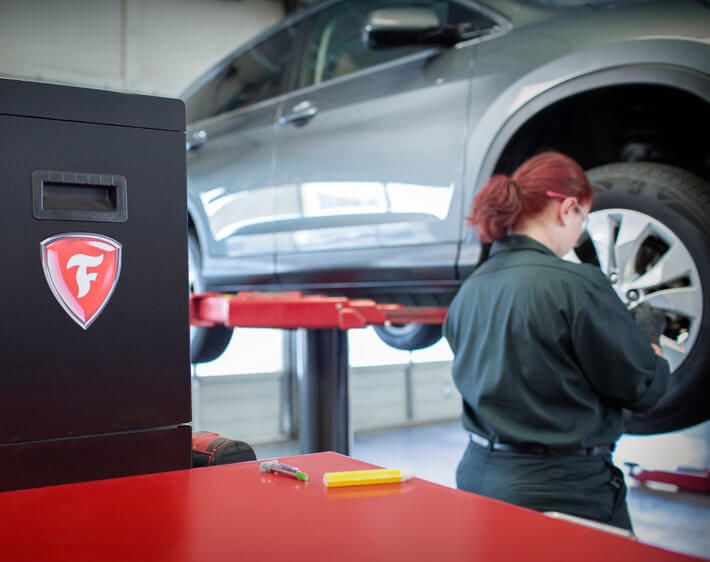Over the years, owners and reviewers alike have praised the Hyundai Sonata as an affordable car that delivers the ride and reliability they need. Those same years can wear down any vehicle, though. To help you get the most out of your Hyundai Sonata, here are four important maintenance tips.
Tip #1: Tune into excessive engine noise.
"Sonata" comes from the Latin word "sonare," or sound.
But excessive engine noise is not a sound you want to hear coming from your Sonata. Some 2000-2017 Sonatas struggle with major engine noise when starting up after the engine has been turned off for a few hours.
One possible culprit is low motor oil. You can check your motor oil level at home. If the motor oil level is correct, however, the troubling tune could be due to a problem with the timing chain tensioner.
A courtesy check and engine tune-up at Firestone Complete Auto Care can help turn this sour note into a sweet song.
Tip #2: Feel for a misfiring engine.
A misfiring engine feels jerky or shaky. Your engine stumbles and spurts, then regains its momentum. Several things can cause a misfiring engine in the Hyundai Sonata. These include:
- A loss of spark from the spark plug: Old or damaged spark plugs, faulty plug wiring, or a cracked distributor cap may all lead to this condition.
- A poorly balanced air-fuel mixture: This can happen when a fuel injector gets dirty or clogged, or fuel pressure is too low.
- Compression loss: Compression loss can often be traced back to a leaky exhaust valve or a blown head gasket.
If you’re especially good at playing automotive detective, you could make a list of the various possibilities and begin checking them one-by-one. But to save some time and a fair amount of trouble, take your Hyundai to the pros. Most Sonata drivers report in online forums that it's tricky to track down the source of a misfire.
Tip #3: Check your records.
Some Hyundai Sonata owners encounter engine seizure issues. One possible cause is a factory production technique used on a particular set of cars for a short time.
"Metal debris may not have been fully removed from the crankshaft area during manufacturing at Hyundai's Alabama engine plant. That can restrict oil flow to the connecting rod bearings," notes USA Today. And if that happens, the engine could stall and cause a crash.
Hyundai has since issued a safety recall for 470,000 Sonata sedans from the 2011 and 2012 model years. Contact a Hyundai dealership if you're not sure about your Sonata. Or, enter your VIN number on SaferCar.org. If there's an open safety recall for your vehicle, your manufacturer will fix the problem for free.
This easy-peasy internet-powered auto maintenance tip may also help you avoid problems with a faulty fuel pump on a few 2008 Hyundai Sonatas.
Your safety is a top priority for us at Firestone Complete Auto Care, and it’s at the heart of every recommendation we make, even if we’re not the ones who perform your service.
Tip #4: Boost your fuel efficiency.
If you’ve noticed your Hyundai Sonata’s fuel efficiency isn’t what it used to be, try:
- Checking your driving: Fast driving, frequent starts and stops, and excessive idling can all take a bit of pep out of your Sonata’s fuel efficiency.
- Lightening your load: Your fuel efficiency could suffer if you’re carrying a lot of unnecessary weight in your trunk or rooftop carrier. Streamline your ride by clearing out those spaces.
- Checking tire pressure: Underinflated tires don't cost you a great deal of fuel, but they do have an impact on fuel efficiency. Underinflated tires can also be a safety hazard. Find your recommended tire pressure and keep your tires properly inflated.
Make your Sonata sing!
Are all of your Sonata's pieces and parts moving in perfect harmony? Stay on top of your Hyundai Sonata maintenance schedule and visit Firestone Complete Auto Care for all of your Sonata service and repair needs.



